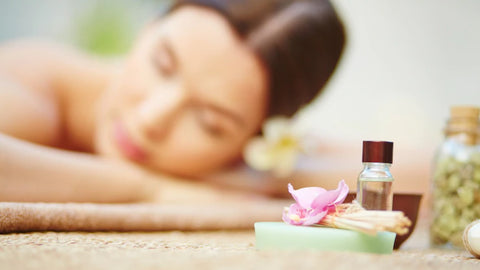Aromatherapy is believed to work on a biological level through the inhalation and absorption of aromatic compounds found in essential oils. Here's a brief overview of how aromatherapy can affect the body biologically:
1. Olfactory System: When you inhale the scent of essential oils, the aromatic molecules travel through your nasal passages and come into contact with olfactory receptors. These receptors are connected to the olfactory bulb, which is part of the limbic system in the brain responsible for emotions, memory, and behavior. This connection allows the aromatic molecules to directly impact the emotional and psychological aspects of an individual, influencing mood, stress response, and relaxation.
2. Inhalation and Respiratory System: When you inhale essential oils, small volatile molecules can reach the respiratory system. This can have various effects, including:
- Respiratory Support: Certain essential oils, such as eucalyptus or peppermint, contain compounds that can help clear congestion, open up airways, and support easier breathing.
- Anti-inflammatory Effects: Some essential oils, like lavender or chamomile, have anti-inflammatory properties that may help reduce inflammation and promote respiratory comfort.
- Mucus and Phlegm Clearance: Essential oils with expectorant qualities, such as pine or rosemary, can help loosen and expel mucus or phlegm, supporting respiratory health.
3. Absorption through the Skin: Essential oils can also be absorbed through the skin, although this method is less direct and slower than inhalation. When applied topically, essential oils can penetrate the skin, enter the bloodstream, and potentially exert therapeutic effects. Factors such as the size of the essential oil molecules, skin integrity, and the use of carrier oils can affect their absorption rate.
- Localized Effects: When applied topically, essential oils may have localized effects on the skin, muscles, or joints, depending on their specific properties. For example, tea tree oil is known for its antimicrobial properties and can be applied to address skin concerns.
It's important to note that the scientific research on aromatherapy's biological effects is still evolving, and individual responses to essential oils can vary.
Article By: Heather Campa, Wyoming Wildflower



